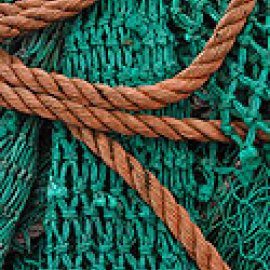Aqua-Cultural Thoughts
-
English
-
ListenPause
Intro music
Welcome to World Ocean Radio…
I’m Peter Neill, Director of the World Ocean Observatory.
Seafood is a world staple, under siege by increased consumption and over-fishing. Aquaculture is the necessary alternative, and has made definite in-roads into the supply chain and consumer demand. Salmon, shrimp, and shellfish are available globally, an evolutionary product development responding to the challenges of siting, waste, community disruption, human rights, marketing and distribution, and customer acceptance. Aquaculturally grown and harvested marine species will inevitably become an ever-increasing percentage of the world diet; there can be no question about it.
And yet, in our conventional way, we raise barriers to success. Where I live, aquaculture projects have been proposed, and opposed, legitimate concerns raised by past problems, by water quality and access issues, by conflict with other fisheries, primarily lobster, and by those who will happily consume aquaculture product, but not if it is created “in their back yard.” Some products, like oysters and mussels, seem to have passed the scrutiny as opposition has relented in the face of an open dozen with vinaigrette or a steaming pot with cream, butter, and garlic.
New projects have not been as successful – stopped by community opposition, litigious coastal landowners, permit delays, and exhausted, prolonged financing. Some international projects have simply gone away; others have doubled-down for a long, expensive process in the hope that market forces, perhaps even reason, might prevail. All will be revealed.
Two interesting successes have caught my attention. The first is American Unagi, a recent start-up based in Waldoboro, Maine, that is using aquaculture processes to grow baby eels, or elvers, into a larger product to feed the growing interior and export market for grilled eel as part of a Japanese-driven market and growing consumer popularity for Asian food worldwide. The company, a dream venture of a young entrepreneur/founder, Sara Rademaker, has recently received a $1.5 million investment and built a 27,000 square recirculating aqua-production facility to meet demand, even from Japan, a far cry from the company’s origin as a bright idea in Sara’s basement. The intent of the investor, RuralWorks, a coalition of women in New England and beyond, interested in angel and impact investing, is “to build local agriculture and food supply chains, to create resilience in rural communities, and to promote environmentally responsible solutions.” With eels, no less.
The second point of interest is wildly ironic although equally gratifying. The Aquaculture Research Institute at the University of Maine has recently received funding from the USDA National Institute for Food and Agriculture to underwrite a multi-year workforce training program, entitled AQUEOUS: Experimental Opportunities for Undergraduate Students: Integrating Indigenous and Western Science Through Applied Aquaculture Research. The goal is to focus on “marine and land-based aquaculture incorporation of indigenous and cultural knowledge… involving interdisciplinary faculty, the aquaculture industry, engagement with Wabanaki tribal knowledge keepers, tribal students, and others” to increase capacity for sustainability research and leadership. It would seem that beneath this elaborate educational construct there is the intent to integrate indigenous knowledge and Western science.
Therein lies the irony. A traditional college science faculty has engaged native knowledge-keepers to create a program to teach a mixed group of high-school students through courses, presentations, mentoring, internships, and ultimately employment, a discovered integration of skills applicable to an emerging aquaculture industry AND the habitat restoration, fishing methodology, cultivation practice, and product distribution in rivers and coastal waters traditionally harvested by tribal ancestors over which, still, there remain questions of native sovereign access and food rights unresolved. This convoluted arrangement is most welcome if it will take us to a significantly simple outcome: the recognition of the conservation ethic of native people that provided food, health, and security for millennia before our consumption ethnic misunderstood plenty as infinite access to infinite supply to meet infinite demand without restriction, respect, or renewal. Now, finally, the hard way, on the verge of finite exhaustion, we presume to start over, to teach old ways, as new to solve a problem of our own creation. The wheel of irony: how things go round and round.
We will discuss these issues, and more, in future editions of World Ocean Radio.
Outro music
Seafood is a world staple, under siege by increased consumption and over-fishing. Aquaculture is the necessary alternative, yet is a polarizing issue in coastal communities. What are we to do? This week we explore two Maine-based successes in aquaculture that are building local supply chains, increasing resilience in rural communities, promoting environmentally responsible solutions, and integrating indigenous and cultural knowledge and skills for an emerging industry.
About World Ocean Radio
World Ocean Radio is a weekly series of five-minute audio essays available for syndicated use at no cost by college and community radio stations worldwide, providing coverage of a broad spectrum of ocean issues from science and education to advocacy and exemplary projects.
World Ocean Radio
14 Years, 700+ Episodes
Ocean is climate
Climate is ocean
The sea connects all things
- Login to post comments



